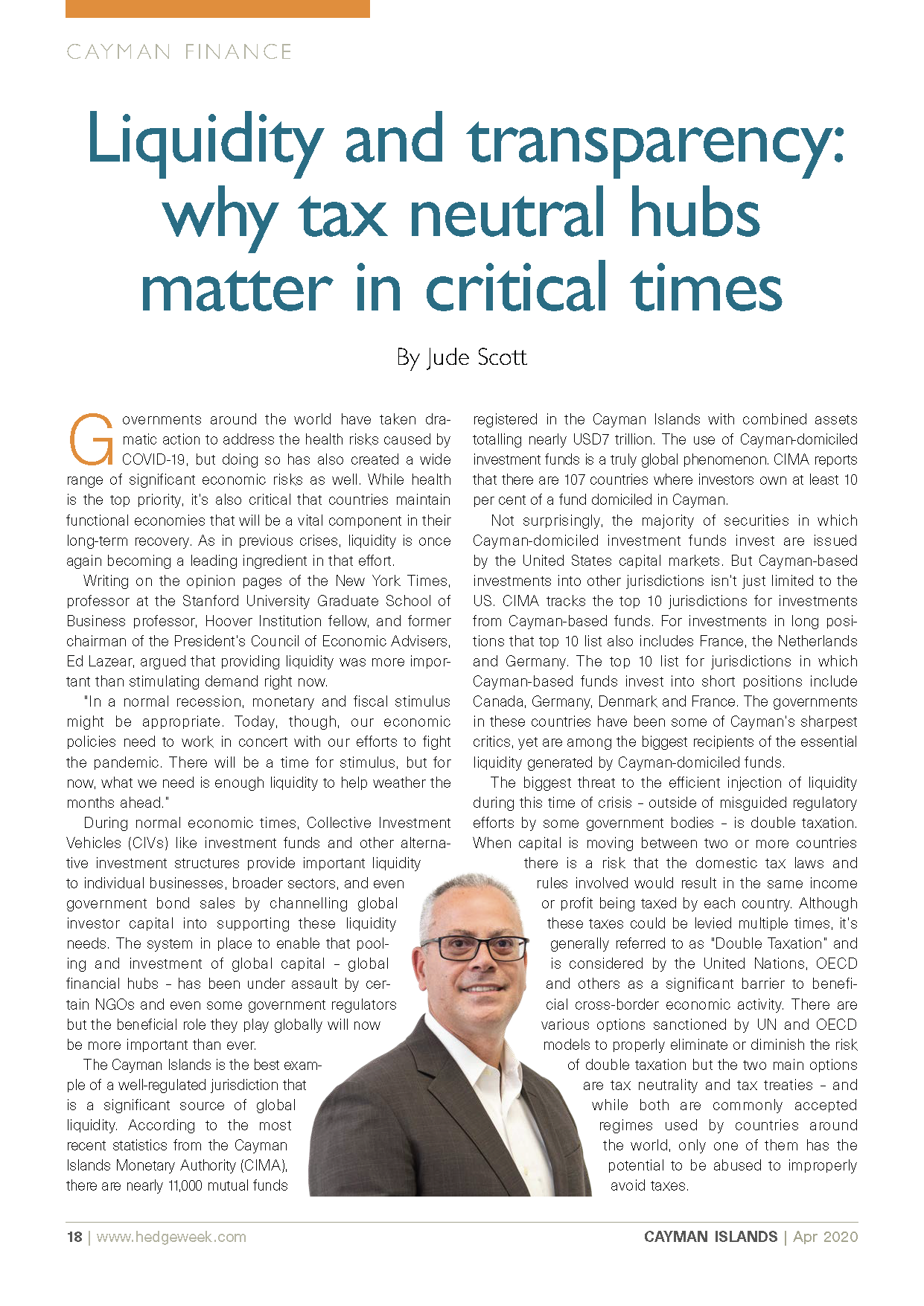International credit rating agency Moody’s has maintained the Cayman Islands Government’s Aa3 bond issuer rating, Aaa country ceiling rating, and ‘stable’ economic outlook in a report issued on Thursday, 8 June 2023.
Moody’s referenced the Cayman Islands’ stable political environment, strong policy continuity, high government effectiveness, sound financial management, and economic growth following the COVID-19 pandemic as factors supporting the Aa3 rating.

Premier Wayne Panton said: “The reaffirmation of our credit rating as well as the ongoing ‘stable’ economic outlook is testament not only to the ongoing prudence of Government fiscal policy and the strength of our economy but also to the resilience of our people as we continue to rebound from the economic effects of the COVID-19 pandemic. Moody’s made note of the significant economic recovery made in 2022, and this is an achievement that we can all be proud of.”
Panton said, “The ‘high’ rating for the Cayman Islands Government positively affects all economic activity within the Cayman Islands as it reinforces investor confidence in the Cayman Islands, which then leads to higher levels of investment, increased economic activity and greater opportunities for Caymanians.”
Moody’s rating committee evaluated the rating of the Cayman Islands Government on 5 June 2023, and found that the Islands’ economic fundamentals and economic strength have not materially changed since the last review in October 2022.
Top-tier rating
The Aa3 sovereign rating is in the top tier of Moody’s ratings matrix. The Cayman Islands government’s rating is only three notches below the highest rating of Aaa. Aa-rated bonds are deemed to be of high quality and subject to very low credit risk.
The Cayman Islands has a similar rating to jurisdictions including Belgium, Czech Republic, Hong Kong, Ireland, Isle of Man, Macau, Qatar, Taiwan, and the United Kingdom.
Premier Panton said, “With nominal GDP of US$6.8 billion in 2022, Moody’s notes that the Cayman Islands is a fraction of the size of much larger Aa-rated peers, which have a median nominal GDP of US$416 billion. However, with per capita income of US$87,135 in 2022, the Cayman Islands is significantly wealthier than similarly rated peers.”
He also noted that the Cayman Islands’ debt-to-GDP ratio was 8.9% at the end of 2022, which is a fraction of the 43% of GDP median for similarly rated countries.
“Moody’s determined that the Cayman Islands’ strong institutions and track record of effective policy making mitigate risks associated with our small size and highly concentrated economic structure,” he said.
Cayman’s ongoing relationship with the United Kingdom was also noted as a positive factor for the Moody’s rating.
Cayman’s public management and finance legislation includes a Framework for Fiscal Responsibility (FFR), which sets parameters and fiscal targets for government debt levels, borrowing and debt service.
“Compliance with FFR targets has resulted in the Cayman Islands’ fiscal metrics being significantly stronger than similarly rated peers,” Panton said.
The Moody’s report explains that the Cayman Islands’ rating could move upward or downward in future. Upward movement could be gained through economic diversification, the build-up of significant fiscal buffers to address economic shocks, and a policy framework that ensures debt levels will remain very low.
Conversely, downward pressure on the rating would emerge if the Islands’ debt burden begins to rise, either due to policy reasons, sustained weaker growth, or both.
Sanctions to the financial sector that structurally weaken the country’s medium-term growth prospects, or storm-related damages to infrastructure that exceed historical levels, could also lead to a negative rating action.
Stable outlook
However, Moody’s economic outlook for the Cayman Islands is stable reflecting the rating agency’s belief that economic policies will continue to support macroeconomic stability, and that Cayman is effectively participating in global efforts against tax evasion.
Although Moody’s notes that the Cayman Islands’ economy is significantly smaller and less diversified than that of its rated peers, the country’s strong institutional framework supports economic resilience.
Moody’s assessment of the Cayman Islands’ risk profile reflects moderate exposure to environmental risks, mitigated by a very strong governance profile that supports the sovereign credit rating and capacity to deal with sudden shocks.
Moderately negative risk factors were the Islands’ location in the Caribbean, small size and significant reliance on tourism, which are features that leave the Cayman Islands vulnerable to the physical effects of climate-related shocks.
The Moody’s report notes that the country is exposed to hurricanes that have the potential to cause flooding and damages to infrastructure.
However, Cayman is considered to have low exposure to social risks across most categories, due to comparatively strong education results as well as a strong economy that supports low unemployment levels and provides access to basic services and health care that compares well with other countries worldwide.
Resilient economy
Moody’s assessed the country’s institutions as having supported economic development, stable and high growth, and high income levels, thereby increasing the economy’s shock absorption capacity.
Between 2015 and 2019, real GDP growth averaged 3.5%, and despite its high reliance on tourism, Cayman’s economy contracted less during the pandemic than larger rating peers that have a more diversified economic structure.
Moody’s noted that an economic recovery in 2022, when real GDP expanded 3.7%, was aided by the rebound in tourism, which Moody’s expects will continue to drive growth in 2023 with expectations of average growth of 2% during 2023-2025.
Financial sector growth
The Moody’s report observed that the Cayman Islands has developed a very large financial sector relative to the size of its economy, establishing the jurisdiction as one of the world’s largest offshore financial centres.
Moody’s perceives that changes in this sector could have a significant effect on the Cayman Islands’ economy, but also notes that Cayman has a track record of effectively adapting to international efforts against tax avoidance, tax evasion and financial transparency.
While the number of banking licences in the Cayman Islands has declined over time, total company registrations have grown consistently and Moody’s judges that Cayman remains competitive in a number of areas of financial services, as the country continues to see growth in the number of mutual funds, and more recently expansion in the insurance sector.
Premier Panton noted that while the rating agency’s rationale for the reaffirmation of the Islands’ Aa3 rating is reassuring, there remains no room for complacency.
He said, “This latest evaluation from Moody’s reflects confidence in our country’s economic, fiscal and institutional strengths. However, it also underscores our responsibility to ensure that these accomplishments are maintained for the benefit of this and future generations. We must remain committed to keeping our debt burden low and affordable, diversifying and growing our economy, protecting our financial services sector, and mitigating the potential risks posed by climate change and other weather-related disasters.”


